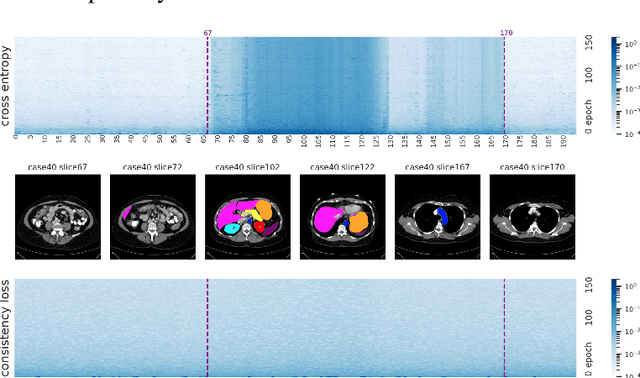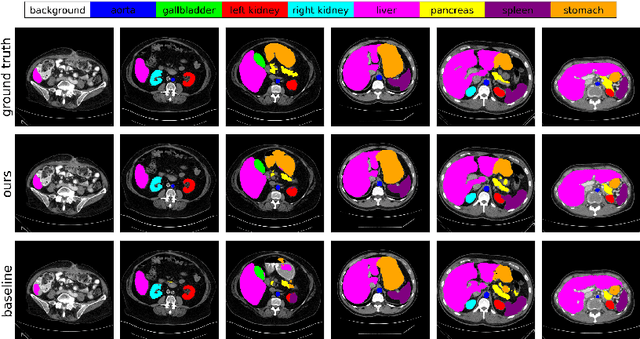AdaWAC: Adaptively Weighted Augmentation Consistency Regularization for Volumetric Medical Image Segmentation
Paper and Code
Oct 04, 2022



Sample reweighting is an effective strategy for learning from training data coming from a mixture of subpopulations. In volumetric medical image segmentation, the data inputs are similarly distributed, but the associated data labels fall into two subpopulations -- "label-sparse" and "label-dense" -- depending on whether the data image occurs near the beginning/end of the volumetric scan or the middle. Existing reweighting algorithms have focused on hard- and soft- thresholding of the label-sparse data, which results in loss of information and reduced sample efficiency by discarding valuable data input. For this setting, we propose AdaWAC as an adaptive weighting algorithm that introduces a set of trainable weights which, at the saddle point of the underlying objective, assigns label-dense samples to supervised cross-entropy loss and label-sparse samples to unsupervised consistency regularization. We provide a convergence guarantee for AdaWAC by recasting the optimization as online mirror descent on a saddle point problem. Moreover, we empirically demonstrate that AdaWAC not only enhances segmentation performance and sample efficiency but also improves robustness to the subpopulation shift in labels.
 Add to Chrome
Add to Chrome Add to Firefox
Add to Firefox Add to Edge
Add to Edge